Manufacturing excellence is the cornerstone of any successful industrial operation, and achieving it requires a combination of skilled craftsmanship, advanced technology, and precise engineering. In this context, CNC machining and precision engineering services play a pivotal role, transforming raw materials into high-quality components with exceptional accuracy and consistency. The integration of computer numerical control CNC machines into manufacturing processes has revolutionized production by enabling complex designs to be executed with unparalleled precision and repeatability. This level of control allows manufacturers to meet stringent tolerances and quality standards, which are essential in sectors such as aerospace, automotive, medical devices, and electronics. At the heart of manufacturing excellence is the expertise of highly trained machinists and engineers who understand the nuances of CNC programming, tool selection, and material behavior. Skilled CNC operators can interpret complex blueprints and translate them into precise machine instructions that guide cutting tools along exact paths, ensuring every part conforms perfectly to design specifications.
Furthermore, precision engineering extends beyond machining to encompass areas such as fixture design, quality inspection, and process optimization, all of which contribute to producing superior end products. Precision engineering services support manufacturing excellence by providing critical functions such as dimensional measurement, calibration, and surface finish evaluation. These services employ state-of-the-art metrology equipment including coordinate measuring machines CMM, laser scanners, and optical comparators to verify that parts meet exacting standards. Accurate measurement and validation are essential to detect deviations early, preventing defective components from progressing through the supply chain and avoiding costly rework or recalls. Additionally, precision engineering helps refine manufacturing processes by analyzing data and identifying areas for improvement, thus enhancing product quality and reliability over time. The synergy between skilled CNC machining and precision engineering fosters a manufacturing environment where innovation thrives. Manufacturers can tackle increasingly complex projects involving intricate geometries, tight tolerances, and advanced materials thanks to this collaboration. Modern CNC precision machined parts suppliers equipped with multi-axis capabilities and automated tool changers allow for efficient production of sophisticated parts that were once impossible or prohibitively expensive to fabricate.
Precision engineering ensures that these parts are produced consistently and perform as intended, reinforcing customer trust and satisfaction. Moreover, Uneed manufacturing excellence achieved through these methods contributes to sustainable practices by optimizing resource use and minimizing environmental impact. Efficient machining reduces material waste, while precision quality control limits the need for remanufacturing and scrap. This not only saves costs but also supports corporate responsibility goals and regulatory compliance. In summary, manufacturing excellence is realized through the combination of skilled CNC machining and comprehensive precision engineering services. Together, they ensure that products are manufactured with exacting accuracy, consistent quality, and operational efficiency. This foundation enables industries to meet evolving market demands, deliver superior products, and maintain competitive advantages in a rapidly advancing technological landscape. The commitment to precision, expertise, and continuous improvement remains the hallmark of outstanding manufacturing performance.








